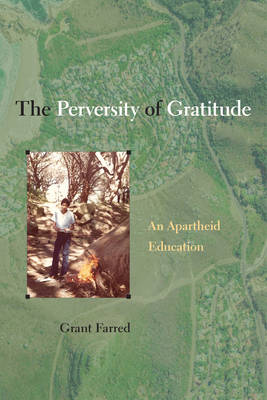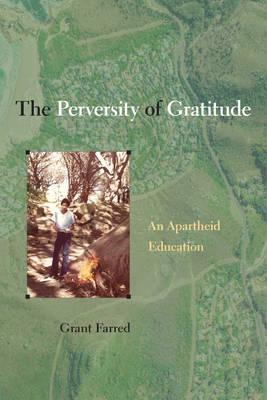
- Retrait gratuit dans votre magasin Club
- 7.000.000 titres dans notre catalogue
- Payer en toute sécurité
- Toujours un magasin près de chez vous
- Retrait gratuit dans votre magasin Club
- 7.000.000 titres dans notre catalogue
- Payer en toute sécurité
- Toujours un magasin près de chez vous
40,95 €
+ 81 points
Description
Apartheid, ironically, provided Grant Farred with the optimal conditions for thinking. He describes South Africa's apartheid regime as an intellectual force that, "Made thinking apartheid, more than anything else, an absolute necessity." The Perversity of Gratitude is a provocative book in which Farred reflects on an upbringing resisting apartheid. Although he is still inclined to struggle viscerally against apartheid, he acknowledges, "It is me." Unsentimental about his education, Farred's critique recognizes the impact of four exceptional teachers-all engaging pedagogical figures who cultivated a great sense of possibility in how thinking could be learned through a disenfranchised South African education. The Perversity of Gratitude brings to bear the work of influential philosophers such as Martin Heidegger and Jacques Derrida. The book tackles broad philosophical concepts-transgression, withdrawal, and the dialectic. This leads to the creation of a new concept, "the diaspora-in-place," which Farred explains, "is having left a place before one physically removes oneself from this place." Farred's apartheid education in South Africa instilled in him a lifelong commitment to learning thinking. "And for that I am grateful," Farred writes in The Perversity of Gratitude. His autopoiesis is sure to provoke and inspire readers.
Spécifications
Parties prenantes
- Auteur(s) :
- Editeur:
Contenu
- Nombre de pages :
- 226
- Langue:
- Anglais
Caractéristiques
- EAN:
- 9781439924976
- Date de parution :
- 19-01-24
- Format:
- Livre broché
- Format numérique:
- Trade paperback (VS)
- Dimensions :
- 140 mm x 210 mm
- Poids :
- 281 g







